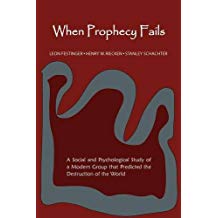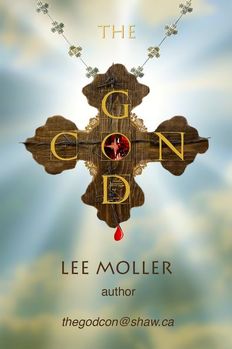 This is an odd book. It was published, but is now vanity published. The only date on the book reflects the day I ordered it. My attention was drawn to this book by Dale Beyerstein, my philosopher on call. We were discussing religious belief and he mentioned that this book might be of interest. The subject of the book is Armageddon, and why people buy into it. More specifically, why do they keep on believing, and in many cases, believe even more when the predicted date for the end of days is just followed by, well... more days. The feeling you get when this happens is called cognitive dissonance, a term Dale Beyerstein thinks may have been coined by the authors. Cognitive dissonance happens when you "know" two contradictory things are true. The contradiction must be resolved. If you know the world will end on Tuesday, then you will experience CD on Wednesday. The book asks why belief seems to grow after an utter failure of prophecy. For this to happen, the book argues that there are 5 necessary conditions to be met:
The book focuses almost exclusively on a bunch of nuts who see the end of days coming pretty much all the time. The head nut was a woman name Kelly who received "spirit writing" about the end of the world. The group was known as the Seekers. The whole movement was wrapped up paranormal powers, Scientology, UFOs (which were in vogue at the time), and the nuts who believe in them, etc. A real mish mash of ideas. I could not handle the narrative about all this. Endless detail, too many crazies and too many crazy ideas. The books conclusions are interesting and controversial. The controversy comes from embedding people in the group to help better understand them. But to get in, you had to prove you to were a nut… and if you got in fast it was probably because you had a story so compelling that they wanted you in. And the next thing you know, you are the poster boy for the movement, and not a dispassionate reported. And you are corrupting the group (a psychological Schrödinger's cat). The authors were well aware of this problem.
0 Comments
|
AuthorLee Moller is a life-long skeptic and atheist and the author of The God Con. Archives
May 2024
Categories
All
|

 RSS Feed
RSS Feed